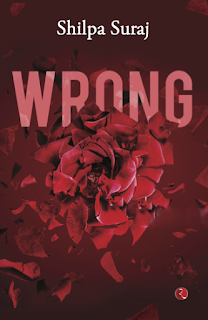One wrong choice on the eve of her wedding has left Ananya married to one brother and in love with THE OTHER…
Ananya Saxena is a good girl who has always done the right thing. She is a dutiful wife, faithful daughter-in-law, and fierce champion of the law. Except, in her heart was another phrase—reckless lover. An impossible choice for a good Indian girl. Duty had Ananya marry her best friend only to end up with a bitter, vengeful husband. Arvin Saxena is now a cripple, both physically and emotionally, after his wife’s confession the day before they were to be married. So, Arvin’s never-ending pain finds release only in hurting her. What he doesn’t know is that her secret sin was loving Arnav Saxena.
Arnav turned his back on all of them when she discarded him and married his younger brother.
When he is forced to return, it sets Ananya on a collision course with fate and she chooses desire over duty to embark on an affair with Arnav. For a brief glorious time, they have it all.
But soon, Ananya is faced with yet another life-changing decision when adultery, bankruptcy, and a web of lies bring her to a crossroads. The dutiful wife or the defiant lover... who does she choose to be? And does she really even have a choice?
Book Links:
Read an Excerpt from Wrong
There was a special place in hell for men who were in love with another man’s wife. Arnav contemplated the fifteen-year-old scotch in the crystal glass in front of him. It helped fan the
flames of the hellfire in his gut. It didn’t stop his gaze from being drawn to the back of her dress. The outfit shimmered like silver smoke over her lithe body. He could see her husband’s hand resting possessively on her exposed back, a thumb gently gliding over her creamy, unblemished skin.
He clenched his glass and gulped down almost half of its contents, savouring the burning trail it left inside him. It did nothing for the guilt that was his constant companion, but it numbed the pain that clawed through him, be it only for a moment.
She laughed. It was a tinkling burst of sound that cut through the quiet murmur of the sophisticated, high-society crowd that had gathered for the charity event. A few tendrils of her hair escaped the complicated hairdo her glorious waist-length mane was caught up in and flirted with the
nape of her neck.
Cursing, he pushed back from the table. He needed a smoke and he didn’t care if the world thought it was rude of him to walk out right now. As he made his way through the throng, a part of him registered the way she leaned against her husband and murmured something into his ear. Turning towards her, he
gave her an indulgent smile that spoke volumes about their relationship.
Oh yes, there was a special place in hell for men who loved another man’s wife. He breathed, crawled and existed in that abyss, for he didn’t just love another man’s wife, he loved his brother’s wife. Amidst the scum that grew in the filthy gutter of the deepest, darkest bowels of hell, he was the slime you scraped off the bottom of your shoe. He lived and breathed guilt, remorse, and gut-searing pain. She was his friend, his passion, his endless torment, his curse. And yet, he loved her.
About the Author:
Shilpa Suraj wears many hats - corporate drone, homemaker, mother to a fabulous toddler, and author.
An avid reader with an overactive imagination, Shilpa has weaved stories in her head since she was a child. Her previous stints at Google, in an ad agency, and as an entrepreneur provide colour to her present-day stories, both fiction and non-fiction.
Contact the Author:
Website * Facebook * Twitter * Instagram * Newsletter


